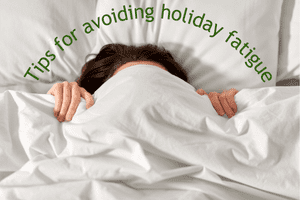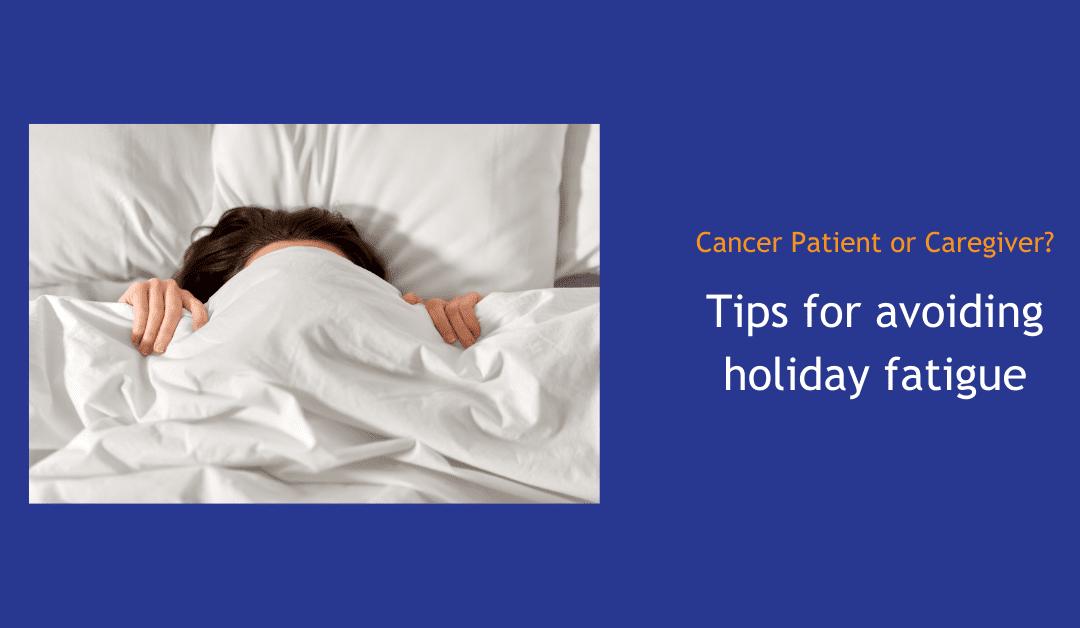The holiday season can be exhausting for anyone, but cancer-related fatigue is a unique challenge. This type of fatigue goes beyond ordinary tiredness. It’s a deep, persistent fatigue or exhaustion that doesn’t improve with rest or sleep, often leaving you feeling unable to carry out your usual activities.
Cancer-related fatigue is a very common issue and can result from several factors, including:
- The cancer itself or other medical conditions.
- Treatments like chemotherapy, radiation, or surgery, and their side effects.
- Medications you’re taking.
- Changes in blood counts.
- Lifestyle factors, such as sleep disruptions, poor nutrition, or inadequate hydration.
- Emotional or mental health struggles, which fatigue can worsen.
You Don’t Have to Endure It Alone
Share your symptoms with your healthcare team so they can identify possible causes and suggest medical and non-medical treatments to help you.
Let loved ones know how you’re feeling—they often want to help but may not know how. Work together to adjust holiday traditions—whether it’s scaling back on celebrations, delegating or sharing tasks like decorating or cooking, or simplifying shopping. Focus on the activities that matter most to you and bring joy.
And yes, naps are absolutely allowed!
Self-Care Strategies for Cancer-Related Fatigue
These tips can help manage fatigue during the holidays and beyond:
- Set priorities. Choose manageable goals, establish routines, and let go of less important tasks. Don’t hesitate to ask for help.
- Balance activity and rest. While conserving energy is essential, staying physically active—even with gentle movement—can boost energy. Ask your healthcare team about safe exercise options.
- Take breaks. Schedule rest or relaxation time during the day, and don’t wait until you’re overtired.
- Improve sleep quality. Follow a bedtime routine to support better rest at night.
- Eat well and stay hydrated. Aim for a balanced diet. Meeting with a registered dietitian or nutritionist can help you to manage treatment side effects, maintain energy, address weight changes, and create tailored meal plans to support overall health and recovery.
- Care for your emotional health. Spend time with people who uplift you, and communicate your feelings—whether happy, sad, or tired. Alternatively, if you need solitude, it’s okay to set boundaries. You decide what feels right.
- Explore complementary therapies. Discuss with your healthcare provider options like acupuncture, massage, yoga, Tai Chi, Reiki, or stress-reduction techniques, which may help with fatigue or stress.
With thoughtful planning and support, it’s possible to navigate the holidays in a way that prioritizes your well-being and still allows you to enjoy what’s meaningful.


Recent Comments